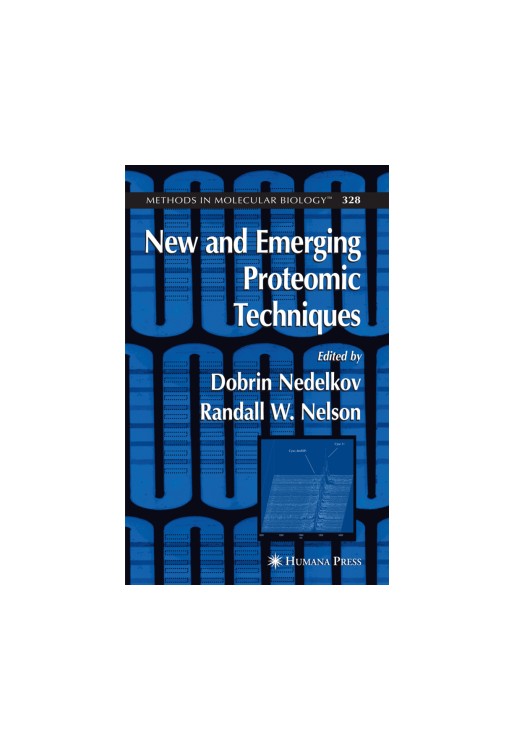Leading researchers and innovators describe in step-by-step detail the latest techniques that promise to significantly impact the practice of proteomics, as well as its success in developing novel clinical agents. The methods span the entire spectrum of top-down and bottom-up approaches, including microarrays, gels, chromatography, and affinity separations, and address every aspect of the human proteome, both quantitatively and qualitatively. The techniques of protein detection utilized are diverse and range from fluorescence and resonance light scattering to surface plasmon resonance and mass spectrometry. The protocols follow the successful Methods in Molecular Biology(TM) series format, each offering step-by-step laboratory instructions, an introduction outlining the principles behind the technique, lists of the necessary equipment and reagents, and tips on troubleshooting and avoiding known pitfalls.
On-Chip Protein Synthesis for Making Microarrays
Niroshan Ramachandran, Eugenie Hainsworth, Gokhan Demirkan, and Joshua LaBaer
RCA-Enhanced Protein Detection Arrays
Brian B. Haab and Paul M. Lizardi
Antibody Microarrays Using Resonance Light-Scattering Particles for Detection
Bernhard H. Geierstanger, Petri Saviranta, and Achim Brinker
Chemical Proteomics Profiling of Proteasome Activity
Martijn Verdoes, Celia R. Berkers, Bogdan I. Florea, Paul F. van Swieten, Herman S. Overkleeft, and Huib Ovaa
Two-Dimensional Difference Gel Electrophoresis
Terence L. Wu
Oligomeric States of Proteins Determined by Size-Exclusion Chromatography Coupled With Light Scattering, Absorbance, and Refractive Index Detectors
Ewa Folta-Stogniew
Surface Plasmon Resonance Imaging Measurements of Protein Interactions With Biopolymer Microarrays
Terry T. Goodrich, Alastair W. Wark, Robert M. Corn, and Hye Jin Lee
Surface Plasmon Resonance Mass Spectrometry for Protein Analysis
Dobrin Nedelkov and Randall W. Nelson
High-Throughput Affinity Mass Spectrometry
Urban A. Kiernan, Dobrin Nedelkov, Eric E. Niederkofler, Kemmons A. Tubbs, and Randall W. Nelson
Isotope-Coded Affinity Tags for Protein Quantification
Christopher M. Colangelo and Kenneth R. Williams
Proteomic Analysis by Multidimensional Protein Identification Technology
Laurence Florens and Michael P. Washburn
Isolation of Glycoproteins and Identification of Their N-Linked Glycosylation Sites
Hui Zhang and Ruedi Aebersold
N-Glycosylation Analysis Using the StrOligo Algorithm
Martin Ethier, Daniel Figeys, and Hélene Perreault
MALDI-MS Data Analysis for Disease Biomarker Discovery
Weichuan Yu, Baolin Wu, Junfeng Liu, Xiaoye Li, Kathy Stone, Kenneth R. Williams, and Hongyu Zhao
Using the Global Proteome Machine for Protein Identification
Ronald C.Beavis
Index


